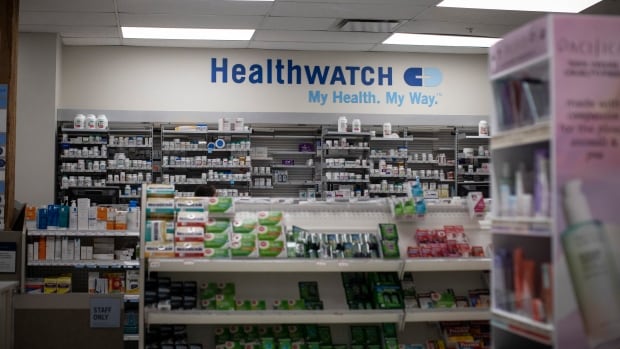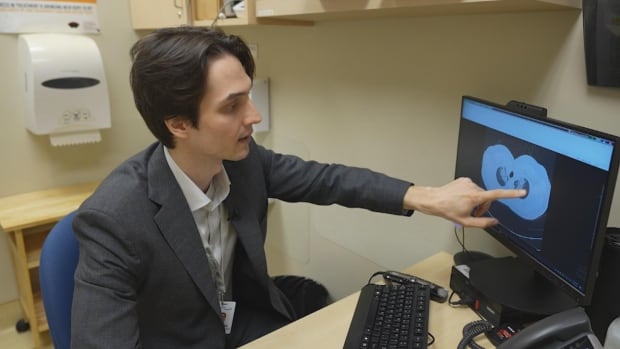The Ontario College of Pharmacists says it’s working with a legal team to explore its options after thousands of pharmacy employees came forward to share “deeply troubling” stories about corporate pressure to perform billable services — sometimes at the expense of patient care.
In a rare statement Monday, registrar Shenda Tanchak said the college “will consider every tool available to us to address these concerns.”
“We heard that volume-focused corporate pressure results in sub-optimal care and a greater risk of error,” Tanchak said.
“And we heard that these pressures affect the well-being of pharmacists who fear, or experience, reprisal if they fail to meet corporate objectives.
“We find this deeply troubling. We cannot stand by silently and allow business practices to interfere with the delivery of safe and effective patient care.”
The statement comes after nearly 1,300 pharmacy workers gave the college “compelling” and “deeply troubling” information about the extent of “corporate-centric” pressures during a recent series of virtual town halls. Nearly 4,000 pharmacy professionals also offered written submissions in an anonymous survey.
The college invited pharmacists to share their concerns at a board meeting after CBC News published its investigation with Shoppers Drug Mart staff who said they were being pushed to bill for unnecessary medication reviews under Ontario’s MedsCheck program, which reimburses pharmacies up to $75 for a call with patients to go over their prescriptions.
In an interview at the time, Shoppers Drug Mart president Jeff Leger said the company does not pressure employees to do MedsChecks, nor does it “have targets or any other kind of element like that.”
Employees later challenged the claim by providing CBC with records to confirm that targets exist.
CBC News spoke with former Shoppers Drug Mart pharmacy employees who believe the company is taking advantage of Ontario’s MedsCheck program, pushing staff to bill for medication reviews patients didn’t necessarily need.
Staff choose between their job or patients, one worker says
The Ontario College of Pharmacists oversees the province’s pharmacists and pharmacy technicians to ensure they’re following legal and ethical standards. It also regulates pharmacies, holding them accountable to operational standards.
On Monday, the regulator said it heard first-hand from pharmacists and pharmacy technicians who participated in the town halls held in recent weeks. One worker said “the time and quota pressures make you feel like you have to choose between patient safety and keeping your job,” while another said staff were afraid they’d lose their jobs if they complained.
Employees said pressure mostly came from those in “corporate/regional/head-office roles” and provided “many specific examples,” according to a college presentation shared with CBC that summarized the comments made.
Workers also said the emphasis on volume “leads to mistakes, errors [and] increased patient safety risks.”
Dozens of current and former Shoppers Drug Mart owners and pharmacists say corporate management pressured them to meet ‘unethical’ targets for unnecessary medical services. Emails and internal records from Shoppers provided to CBC News back up this claim.
The vast majority of pharmacists who responded to the college’s anonymous survey said they faced pressure at Shoppers Drug Mart or another Loblaw pharmacy, with the third highest number of reports coming from those who’d worked at Rexall.
In a previous statement, Loblaw said it stood by Leger’s remarks that the corporation does not use targets or pressure employees.
Loblaw said it was reinforcing mandatory training for its field and store staff on using pharmacy metrics appropriately, based on recent pharmacist feedback, said Catherine Thomas, its vice-president of communications, in a statement earlier this month.
A representative for Rexall previously said it would “under no circumstances … encourage the provision of any clinical services that are not in the best interests of the patient.”
Based on the feedback from pharmacy professionals, the college said pressure to perform MedsChecks were a “symptom of a bigger problem.”
Pharmacists said they were also pushed to limit the time they spent on minor ailment assessments, or consultations with patients for health conditions that can be managed with minimal treatment, like acne or urinary tract infections. Workers also said they faced pressure to dispense Naloxone, which is used to reverse an opioid overdose.
Those services, like MedsChecks, are free to the public.
The college said its options for addressing the issue those will “most certainly include” appointing investigators to examine any “corporate-centric” interference with pharmacists’ independence.
“OCP has zero tolerance for business practices that compromise the ability of pharmacists and registered pharmacy technicians to deliver safe and effective care to their patients,” Tanchak’s statement said.
Last month, Ontario Health Minister Sylvia Jones said the ministry would be doing its “due diligence” to make sure the MedsCheck program was being used appropriately.








